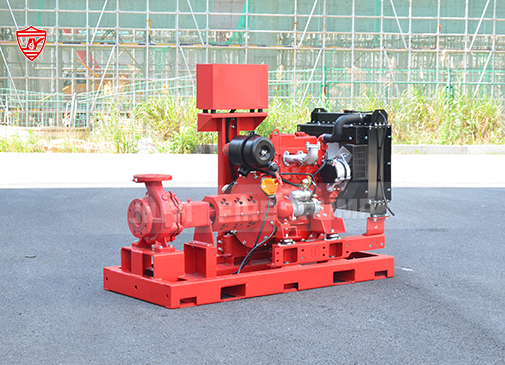Choosing the Right Fire Pump for Harsh Winter Conditions
Fire protection in cold climates presents unique challenges, particularly when temperatures drop below freezing. A properly selected and maintained fire pump ensures reliable performance in extreme weather. But which fire pump is best suited for cold environments?

Key Factors to Consider
-
Pump Type: Diesel vs. Electric
- Diesel Engine Fire Pumps: Diesel pumps are ideal for cold regions because they operate independently of electrical power, reducing the risk of power outages affecting fire protection. However, they require cold-weather starting solutions, such as preheaters and fuel additives.
- Electric Fire Pumps: While reliable, electric pumps depend on uninterrupted power supply, making backup generators crucial for winter-ready installations.
-
Freeze Protection Strategies
- Heated Pump Rooms: Installing pumps in temperature-controlled enclosures prevents freezing.
- Circulation Heaters & Heat Tracing: These help maintain optimal pump and pipe temperatures.
- Antifreeze Systems: Using NFPA-approved antifreeze in sprinkler systems can prevent ice blockages.
-
Material Durability & Weatherproofing
- Choose corrosion-resistant materials like stainless steel and epoxy-coated components to withstand harsh winter conditions.
- Ensure proper insulation for exposed pipes and valves.
-
Compliance with Fire Safety Standards
- Opt for UL Listed and NFPA 20-compliant fire pumps, ensuring they meet strict industry standards for performance and reliability in extreme temperatures.
Best Fire Pump Solutions for Cold Climates
For fire protection in freezing conditions, Diesel Engine Fire Pumps with preheating systems and Electric Fire Pumps with backup power and insulated enclosures offer the most reliable solutions. Combining these with proper winterization strategies ensures uninterrupted fire safety year-round.
Conclusion
Selecting the best fire pump for cold climates requires a combination of robust equipment and strategic winterization. By investing in the right pump type, implementing freeze protection measures, and ensuring compliance with fire safety standards, you can safeguard your fire protection system even in the harshest winter conditions.
